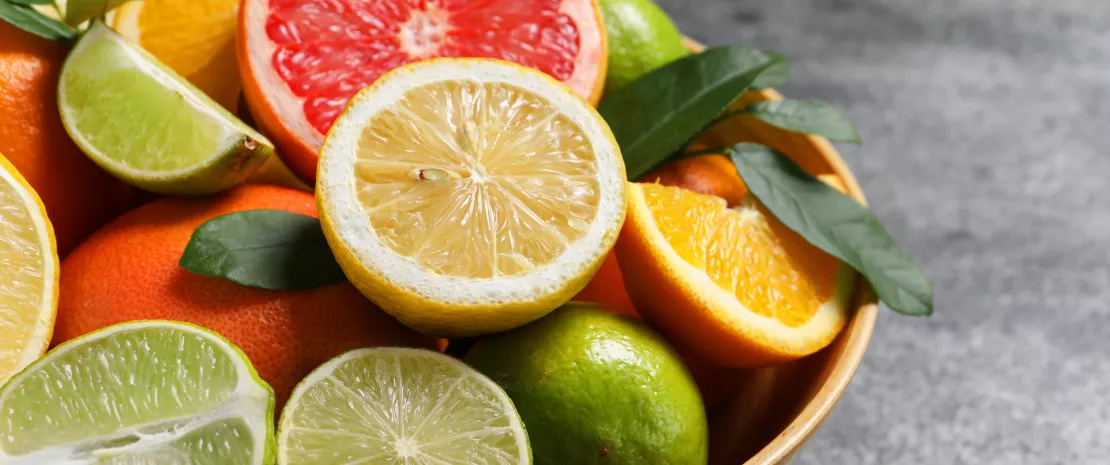The antidepressant effect of citrus: a matter of gut bacteria?
Consumption of citrus fruits could reduce the risk of depression by 22% via the gut-brain axis. Flavonoids in citrus fruits are thought to promote beneficial bacteria, such as Faecalibacterium prausnitzii, which produce a metabolite that improves the availability of serotonin and dopamine.
Lay public section
Find here your dedicated section
Sources
This article is based on scientific information

About this article
Depression, which is thought to affect more than 280 million people worldwide, remains difficult to treat: 70% of patients do not respond to antidepressants and/or develop side effects. Hence the urgent need to identify modifiable risk factors and develop new therapies.
As the Mediterranean diet has shown beneficial effects on depression, researchers have turned their attention to the gut-brain axis. And more specifically to the interaction between citrus consumption, the gut microbiota and the risk of depression in 32,427 women from a cohort of British nurses, Nurses' Health Study II (NHSII) 1.
More citrus, less depression
Between 2003 and 2017, 2,173 cases of depression were observed in the 32,427 women in the NHSII. Looking at their dietary intake, the researchers 2 showed that those who consumed the most citrus fruits (vs. the quintile of those who consumed the least) had a 22% lower risk of depression, after adjustment.
This link is thought to be specific to citrus fruit: no significant association was found between depression and total consumption of fruit, vegetables, apples or bananas.
What components in citrus fruits could explain their antidepressant effect? It would seem that only naringenin and formononetin, two flavonoids especially found in citrus fruit juice and peel, are involved. Vitamin C, though beneficial and much vaunted, is thought to be irrelevant here.
Women Depression is more common among women than men. ²
70% of patients with depression fail to respond to initial treatment with antidepressant medications and/or develop intolerable side effects to the drugs. ³
35% Mediterranean-style diets have been associated with a nearly 35% reduced risk of depression. ³
The mechanisms involved
Analysis of the microbiota of 207 women in NHSII who participated in the sub-study Mind-Body Study 4 dedicated to mental health enabled the researchers to show that citrus consumption promotes the presence of beneficial bacteria, including Faecalibacterium prausnitzii, a bacterium that is under-represented in people with depression, and reduces the presence of some pro-inflammatory bacteria.
This correlation was confirmed by researchers in a cohort of men (Men's Lifestyle Validation Study). All that remained was to understand the link between this bacterium and the brain.
The team's work suggests that F. prausnitzii produces a metabolite called S-Adenosyl-L-methionine (or SAM). This metabolite is thought to reduce the expression of monoamine oxidase A (MAOA) in the colon, an enzyme playing a crucial role in the breakdown of neurotransmitters such as serotonin and dopamine.
It is therefore possible that the production of SAM by F. prausnitzii leads to greater availability of neurotransmitters (by reducing expression of monoamine oxidase A, which degrades them), which could then modulate vagus nerve activity.












